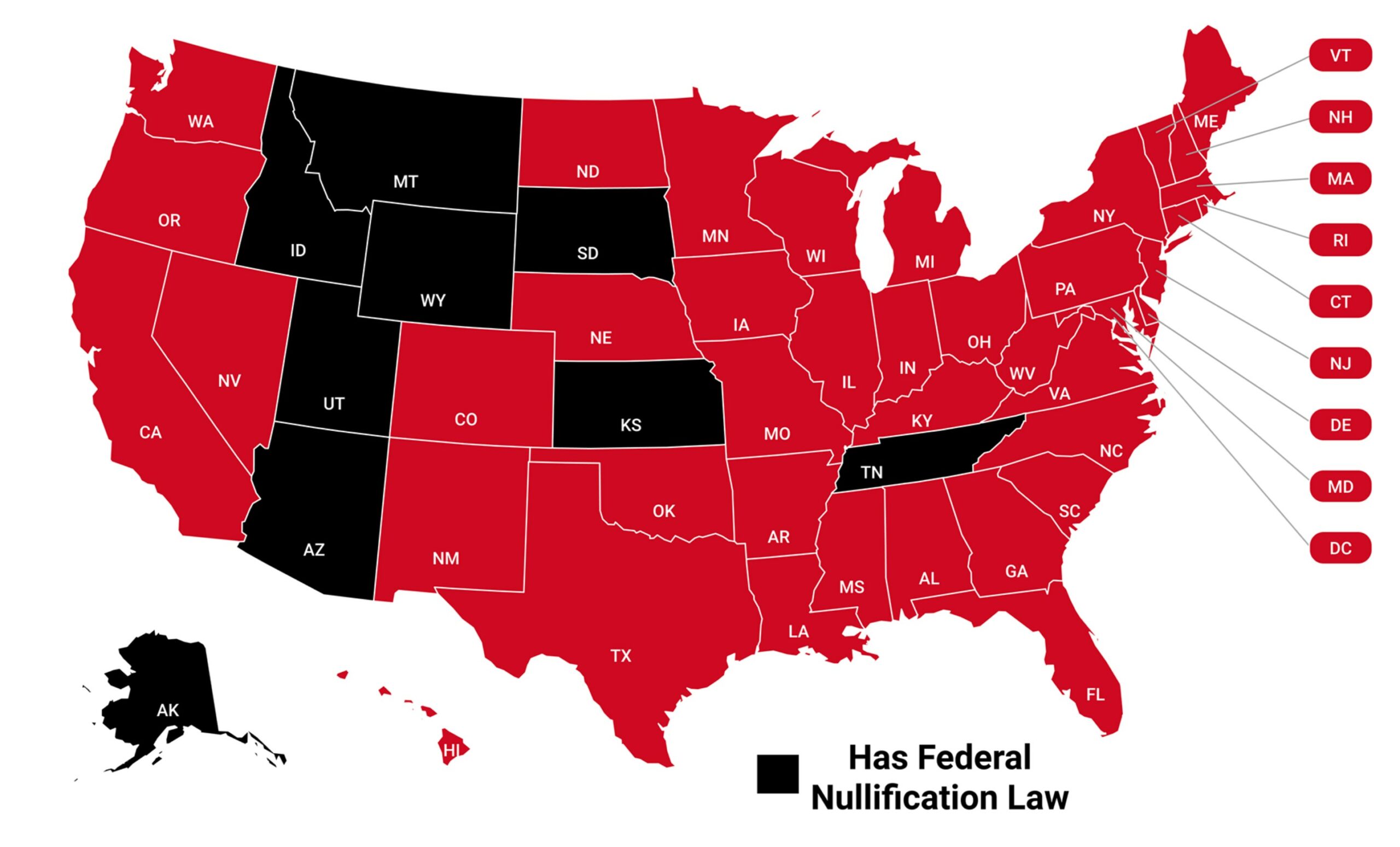Which State Tried to Nullify Federal Laws?

The History of Nullification
The concept of nullification dates back to the early days of the United States. The idea was first proposed by Thomas Jefferson and James Madison in the Kentucky and Virginia Resolutions of 1798. These resolutions argued that states had the right to nullify federal laws that they deemed unconstitutional. The idea of nullification gained popularity in the years leading up to the Civil War, as Southern states sought to nullify federal laws that they believed threatened their way of life.
The Case of South Carolina
South Carolina is the state that is most closely associated with the concept of nullification. In 1832, the state passed an ordinance of nullification that declared two federal tariffs unconstitutional and unenforceable within the state. The tariffs in question were designed to protect Northern manufacturers by raising the price of imported goods, which hurt Southern farmers and plantation owners who relied on imported goods. South Carolina argued that the tariffs were unconstitutional because they favored one section of the country over another, and because they violated the principle of states' rights.
The federal government, led by President Andrew Jackson, responded to South Carolina's ordinance of nullification with force. Jackson threatened to send troops to South Carolina to enforce the tariffs, and Congress passed the Force Bill, which authorized the use of military force if necessary. In the end, a compromise was reached that lowered the tariffs and avoided a military confrontation.
The Legacy of Nullification
The concept of nullification remains controversial to this day. Supporters argue that it is a necessary check on federal power and a way to protect states' rights. Opponents argue that it is unconstitutional and could lead to chaos and anarchy. While South Carolina's attempt to nullify federal laws was ultimately unsuccessful, the idea of nullification continues to be debated and has been proposed by other states in recent years.
FAQs
What is nullification?
Nullification is the idea that individual states have the power to nullify, or invalidate, federal laws that they deem unconstitutional.
Where did the idea of nullification come from?
The idea of nullification was first proposed by Thomas Jefferson and James Madison in the Kentucky and Virginia Resolutions of 1798.
What was South Carolina's ordinance of nullification?
South Carolina's ordinance of nullification declared two federal tariffs unconstitutional and unenforceable within the state.
Was South Carolina successful in nullifying federal laws?
No, South Carolina's attempt to nullify federal laws was ultimately unsuccessful.
Conclusion
The concept of nullification has a long and controversial history in the United States. While many states have proposed nullification of federal laws, South Carolina stands out as having tried to nullify federal laws in a significant way. While the idea of nullification continues to be debated, it is clear that it remains a controversial and divisive issue in American politics.
